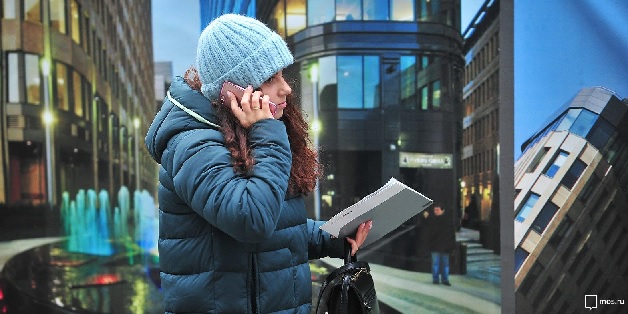
Moscow’s Government Contact Centre has been in operation since 2011 and includes the city’s information and dispatch services. It currently processes about 2.5 million queries from citizens every month.
|
|
Robot helps Muscovites at twice the speed of a live assistant
A virtual assistant created on the basis of AI has been working on the Moscow government hotline since 2014.
It accepts meter readings, helps with housing and communal services, and gives answers to simple questions. For example, the machine informs callers if their documents are ready, advises citizens on their nearest state services centre and its opening hours, and provides information on the municipal heating schedule.
In 2018, the robot handled 4.5 million queries, which is four times more than in 2017.
In 2019, AI is gaining a foothold in a new sphere, as the virtual assistant has now started working on the Moscow Transport Department hotline.
It processes requests about cars impounded due to parking violations. The robot asks for the car’s registration number, tells the caller where it is, what needs to be done to recover it and what documents to take.
“By the end of this year, we expect the robot to be able to process 100% of all calls related to impounded cars,” said Andrey Savizkiy, Head of the City Contact Centre. “The robot is also learning to answer more complicated questions and understand words. For example, it already knows that “car”, “automobile” and “vehicle” are all the same thing.”
According to Moscow IT Department statistics, the robot helps Muscovites at twice the speed of a live assistant. But callers can still discuss complicated questions with a real person.
“In the case of impounded cars, the robot isn’t just more economical but also a more effective solution in such stressful situations. People whose cars have been impounded are often in a terrible mood and try to vent their emotions on the operator,” noted Savizkiy.
Among the advantages of communicating with a virtual assistant, people notice the following:
-
The robot replies instantly, while it takes up to 15-20 minutes for a real person to answer. -
If it is unable to answer a question the robot instantly re-directs the call to an assistant who is competent in a particular field without having to wait too long. -
Quick and effective solutions for basic problems: the robot replies immediately after hearing the query and the quality of the answer is always the same. -
The information provided by the robot is more reliable as there is no human factor involved.
Moscow’s Government Contact Centre has been in operation since 2011 and includes the city’s information and dispatch services. It accepts meter readings, helps with housing and communal services, and gives answers to simple questions. For example, the machine informs callers if their documents are ready, advises citizens on their nearest state services centre and its opening hours, and provides information on the municipal heating schedule.
It currently processes about 2.5 million queries from citizens every month. A virtual assistant created on the basis of AI has been working on the Moscow government hotline since 2014.
In 2018, the robot handled 4.5 million queries, which is four times more than in 2017.
The virtual assistant hears more than 10,000 thank-you’s from grateful Muscovites every month.
About DIT
The Department of Information Technologies of Moscow (DIT) has been rapidly developing and actively growing for the past 5 years. During these years we have created over a thousand systems and services and we are pursuing the target of launching around 300 new projects annually. Today, we are proud of having digitalized over 166 state services, this is obviously more than any other region of Russia. Moreover, within the last years we have created an outstanding number of 178 portals, including the official Mayor and Government of Moscow website “mos.ru“. Our systems cover over 60 industries and penetrate into each aspect of Moscow citizens’ everyday lives, our products and services include:
-
Electronic queue for Civil registry office -
Arrangement of remote medical appointments; Personal electronic medical records -
Children assignment to kindergardens/schools/extracurricular activities -
Providing schools with cutting edge technological equipment -
Obtaining references, enquiries and services remotely -
Numerous projects in housing and public amenities, starting from telemetrics and energetics to the possibility of submitting water usage information
Current structure of the Department distinguishes up to 30 unique products and programs, including medical and education systems informatization, creation of crowdsourcing platforms, development of various resources and portals for Moscow and its citizens. We are aimed at continuing the process of effective informatization of the city with an emphasis on innovation development and advanced technologies application.




































